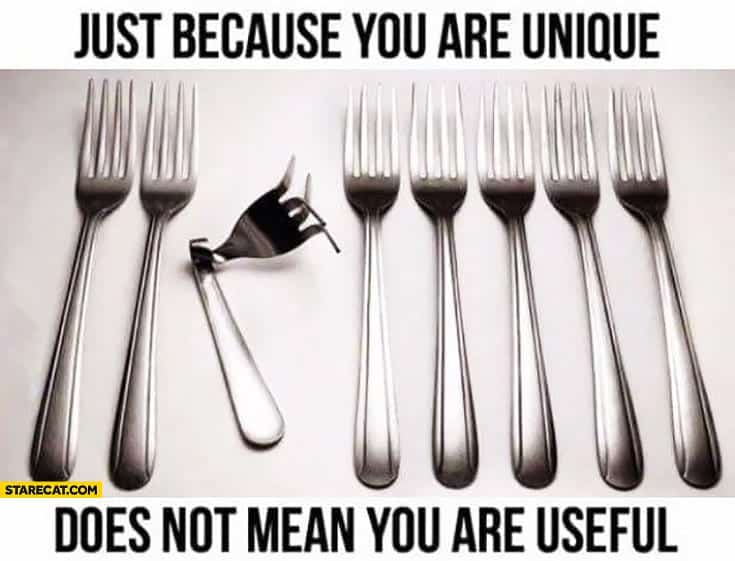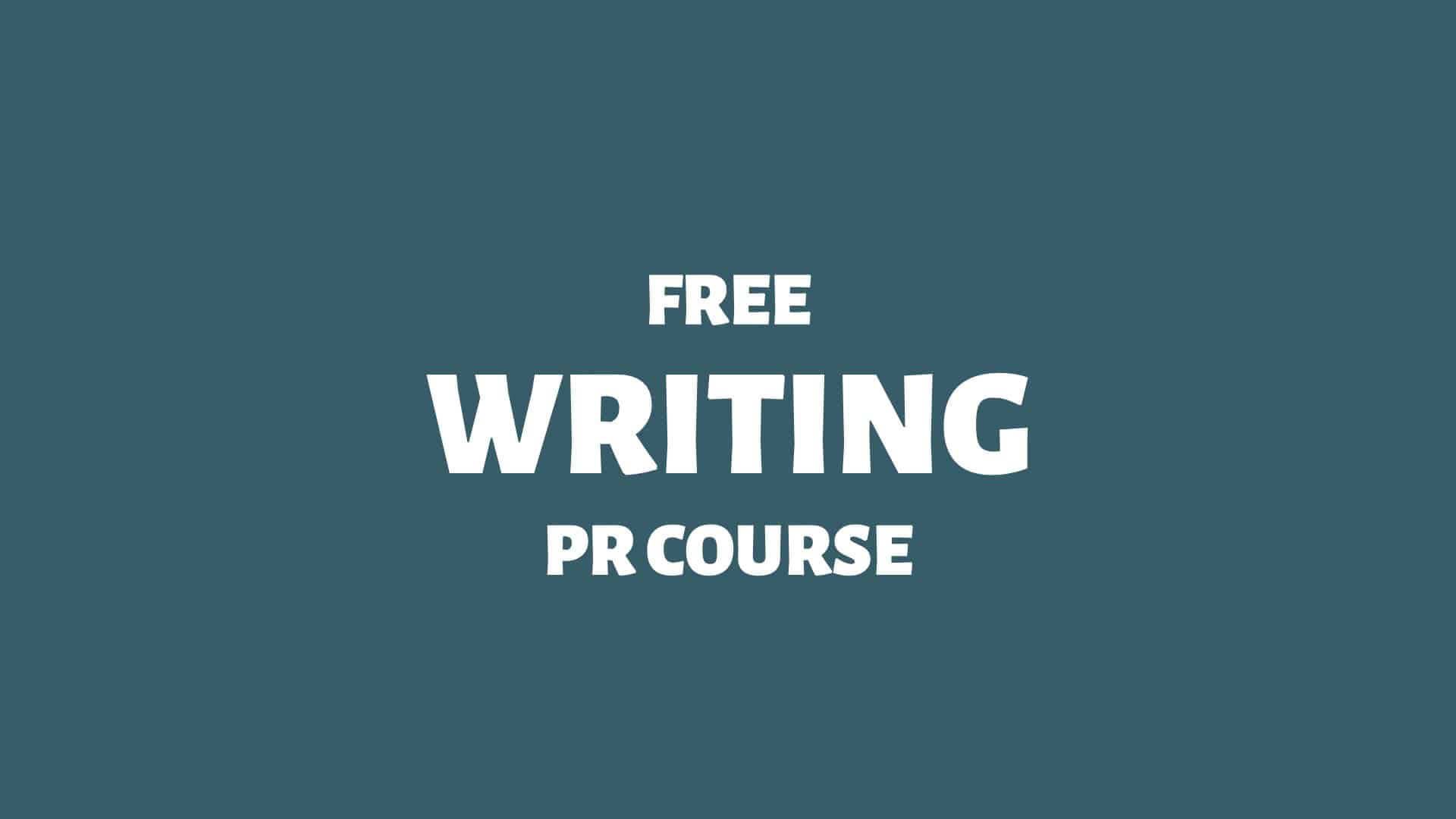Please never use the word “unique” in PR.
Marketing- and PR jargon might not be the worst thing in the world but, as far as I’m concerned, it’s up there. Corporate platitudes equal corporate cringe which equals bad PR.
However, many PR professionals, who honestly should know better, still cling to the word “unique” — even to the point of fiercely defending its use.
Why is “unique” such a despicable word to put in your PR copy?
The typical use case describes something as unique when it isn’t. You might state that the first generation iPhone was a fantastic product, but it wasn’t. A reasonable rule of thumb: If you can produce multiple copies of something in a factory, it’s not unique.
And even if they had only produced one iPhone ever, it wasn’t exactly the first or last smartphone to ever be made.
“But the product had unique features!”
You say that a mass-produced product is unique because it has “unique” features, you say? We’re already on a slippery slope of deflating what such a diffuse statement even means.
Does it mean that no one will be able to copy these features?
Or does it simply mean … “new”?
“Uniqueness” is, by definition, its self-realizing feature. What makes something unique is that it’s uniquely unique.
A fingerprint is unique. A strand of DNA (unless you have an identical twin) is unique. A code stamp for a cryptocurrency is unique by design. Yes, you are a singular human being flowing through the cosmological spacetime. And yes, you are unique.
A work of art is unique because there will only be one original, no matter how many copies you make. A non-fungible token is unique because that’s its whole purpose.
This blog post is unique and served to you via a unique URL. It’s nothing special about this particular URL, but it is unique. That’s why the URL works.
But your new product or service? Or a specific feature? Please.

At the same time, if you zoom in or out far enough, suddenly everything becomes unique.
My wristwatch is unique because no other watch has the same configuration of molecules. No other watch is sitting on my left wrist at this very moment. In that sense, my watch is unique.
Beyond describing what’s genuinely unique by design or purpose, the term doesn’t mean anything. It’s reduced to corporate cringe the very moment you type it into the headline of your press release.
Or worse: Your PR copy is just crap that’s all dancing and all singing.
“You are not special. You’re not a beautiful and unique snowflake. You’re the same decaying organic matter as everything else. We’re all part of the same compost heap. We’re all singing, all dancing crap of the world.”
― Tyler Durden (Chuck Palahniuk), Fight Club
You know how this all works.
If you have to point out that something is “modern”, it probably isn’t.
If you have to point out that something is “cool”, it probably isn’t.
If you have to point out that something is “awesome”, it probably isn’t.
As follows:
If you have to point out that something is unique, it probably isn’t.
“Books serve to show a man that those original thoughts of his aren’t very new after all.”
— Abraham Lincoln
And now we’re getting closer to the actual reason for avoiding using the word “unique” in your PR material:
It’s not because the term is so easy to misuse.
It’s not because the term has been overused and lost its meaning.
It’s not because it’s a sure sign of corporate cringe.
No, it would be best if you didn’t use the word “unique” in PR because …
… if you have something unique on offer, why waste that rare PR opportunity by telling everyone? Instead, show them.

THANKS FOR READING.
Need PR help? Hire me here.

PR Resource: Free Writing PR Course
Spin Academy | Online PR Courses

Spin’s PR School: Free Writing PR Course
Discover the power of effective PR writing with this free Writing PR Course. Find tips and inspiration. Boost your skills and boost your career prospects today.
Public Relations Writing
PR Writing Inspiration
Learn more: All Free PR Courses
💡 Subscribe and get a free ebook on how to get better PR.



